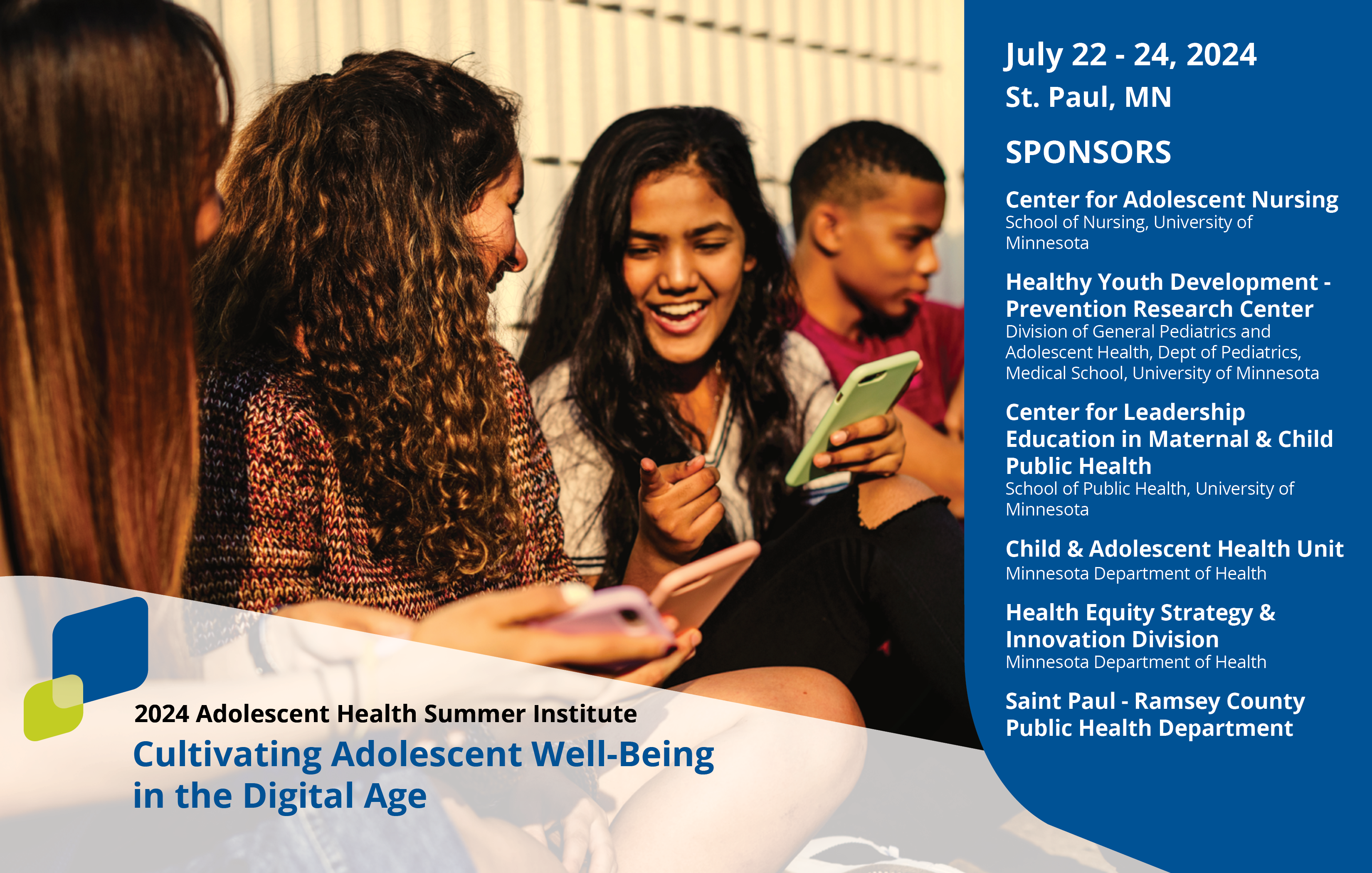
Cultivating Adolescent Well-Being in the Digital Age
All of us are social creatures, and the strength of our relationships has a significant impact on our overall well-being. Young people use social media to build connections, access resources, and explore their identities. Adults are sometimes aware of the positive and negative aspects of technology, but often struggle to guide and advise adolescents on safe and healthy use when technology is constantly present and ever-changing.
During the 2024 Summer Institute in Adolescent Health, we will explore how professionals, parents, and caring adults can engage with and promote the healthy use of technology. Identify how childhood experiences with social media affect adolescent brain development and social, behavioral, academic, and health outcomes. Examine digital literacy, dissect the exploitative nature of influencer culture, and develop skills to empower youth with marginalized identities. Gain an understanding of current advocacy efforts at state and national levels aimed at boosting online protections for youth and envision a future where young people’s needs come before advertisers’ and big tech’s profits.
Daily Theme: Research & Youth Perspectives on the Impacts of Technology
Objectives:
Learn from youth as trends in social media and technology use are shared, as well as stories behind the numbers.
Explore what we know about technology and its impacts on adolescent development.
Examine how technology use affects adolescents’ mental and emotional health, sleep, body image, and social relationships.
Learn from youth leaders involved in an intergenerational program providing resources to educate and advocate for tech accountability.
Daily Theme: Adolescent Development & Support for Young People in Navigating Their Digital Worlds
Objectives:
Examine adolescent brain and cognitive development, as well as what we know about how technology use impacts brain development.
Consider positive and negative impacts of social media use on the mental health of youth of color.
Develop a toolkit with best practices, strategies, and skills to help adolescents develop digital media literacy and support them as they navigate their digital worlds.
Learn from youth leaders involved in an intergenerational program providing resources to educate and advocate for tech accountability.
Daily Theme: Preventing Online Harms Through Legislation & Collective Action
Objectives:
Gain awareness of the policy landscape regarding digital protections to promote Big Tech accountability.
Investigate strategies for online safety and prevention of online harms.
Learn how to take action in your community.
Learn from youth leaders involved in an intergenerational program providing resources to educate and advocate for tech accountability.




